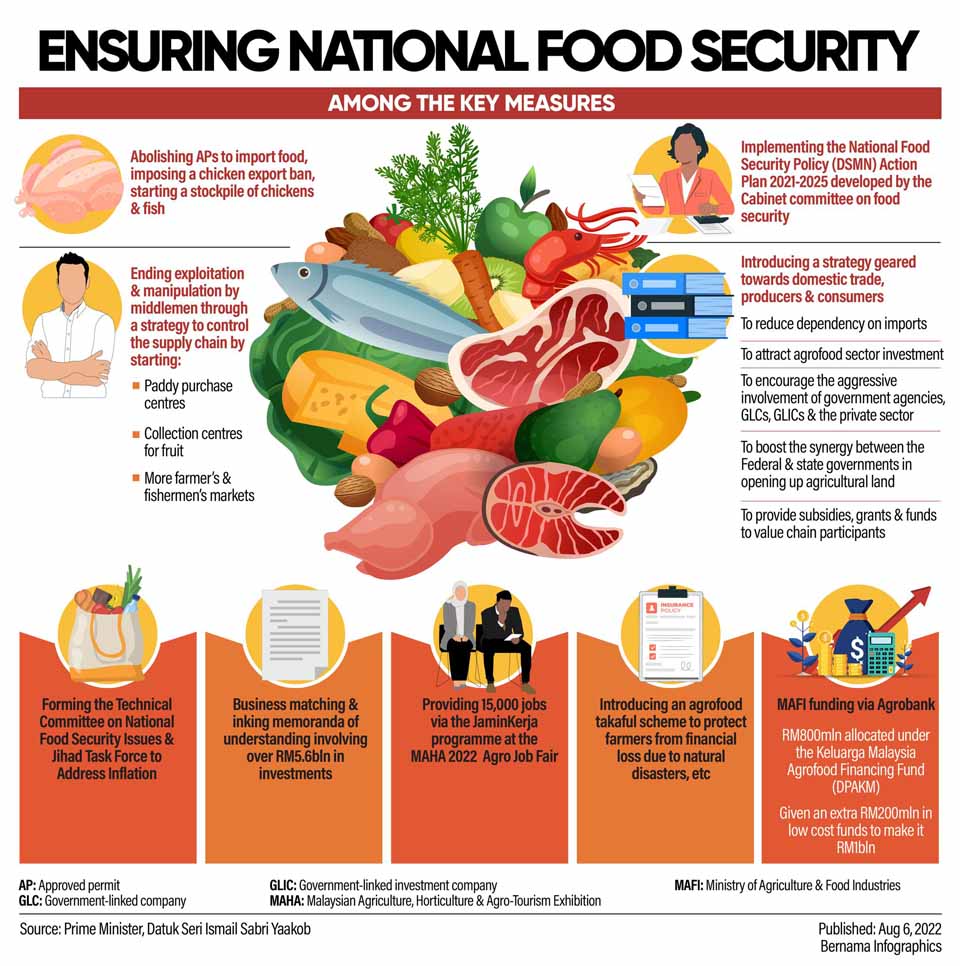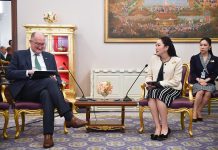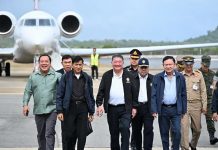
Malaysia’s 2021-2025 National Food Security Policy Action Plan (DSMN) will ensure long-lasting national food security for the country.
Covering five core strategies, namely, the expansion in the use of technology; empowering of research and studies; empowerment of food security data; expansion of strategic collaboration; as well as strengthening the governance of departments and agencies.
The DSMN also outlined 15 strategies and 96 initiatives to ensure the sustainability of the country’s food supply at all times, especially in the face of unexpected situations including natural calamities. It also complements another policy document namely the National Agrofood Policy 2.0 (2021-2030) (NAP 2.0) that aims to modernize the country’s agricultural sector and increase output.
The goal is to forge a resilient, inclusive, competitive and sustainable agro-food sector that is prepared to mitigate and manage food security crises and disruptions of agro-food value chains, said Institute of Strategic and International Studies Malaysia (ISIS) chief executive HerizalHazri.
He pointed out DSMN will not only ensure Malaysia’s food security but also cut down its food import bill.
According to the Department of Statistics Malaysia (DoSM), the share of agriculture stood at 7.4 per cent to overall gross domestic product in 2020 compared with 28.8 percent in 1970.
Malaysia imported 60 percent of its food. In 2020, Malaysia imported RM55.5 billion in food products against RM33.8 billion worth of exports. Malaysia’s import dependency on agricultural commodities to meet domestic demand increased to 13.7 percent from 7.3 percent over 28 years (1987-2015).
However, the rise of prices for agricultural produce and supply chain bottlenecks that started from the COVID-19 pandemic and made worst by Ukraine-Russia conflict since early this year has given rise to food security concerns. The United Nations World Food Program’s warning that the world may have to face food crises added to the jitters.
Agricultural economist Prof Datuk Dr M Nasir Shamsudin said DSMN is a good start but it should be done in an effective, efficient and transparent manner so that after the five-year span the country would be able to reduce reliance on imports and enjoy more of its own produce.
Goals should be set for the country to be able to feed itself and not be intimidated by any food security issues in the long run. This could also help tame its inflation rate which increased 2.3 percent in April from a year earlier, led by higher food prices (4.1 percent).
Nasir too concurred with Herizal that growing dependence on imported food has caused the country to carry an annual bill of more than RM50 billion and rising.
The nation’s dependence on food imports rose from RM51.4 billion in 2019 to RM55.4 billion in 2020 and the figure is expected to rise, he said.
Meanwhile, Malaysia’s Agriculture and Food Industry Minister Datuk Seri Dr Ronald Kiandee said there were four main dimensions that will ensure long-lasting national food security for Malaysia.
The four dimensions are availability, access, food security, and nutrition, as well as natural sources and sustainability.
The effort to tackle food security is a continuous effort and Malaysia needs the capability to produce the country’s food needs.
Ronald added that one such continuous effort was the ministry’s attempt at reducing the country’s dependence on foreign rice imports of 30 per cent.
He said food supply in the country was stable and various efforts under the National Agrofood Policy 2.0 were being conducted to ensure the availability of food for people in the country.
#ASEANInformationExchange2022 (NNT)
 |
 |
 |





